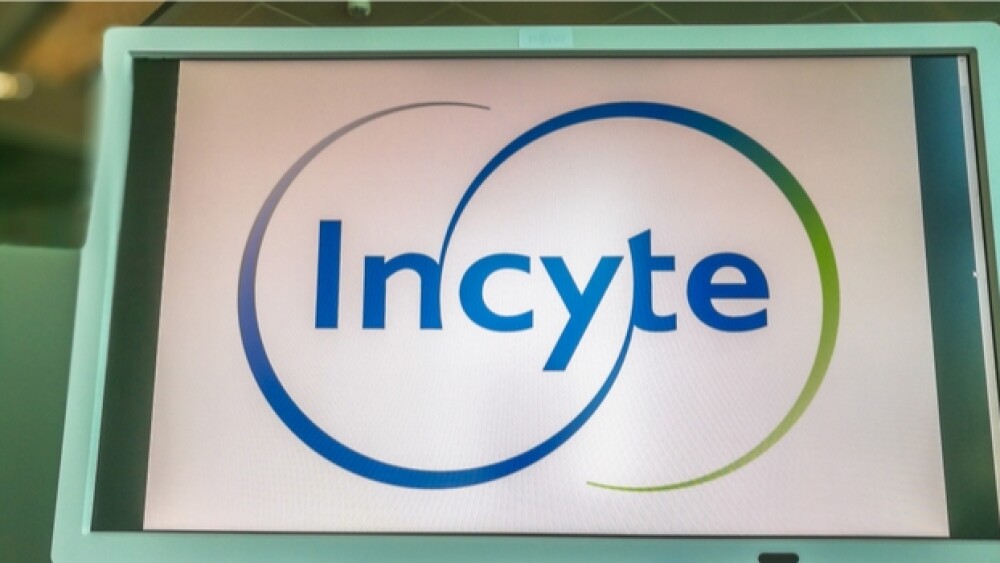The research was presented at the Revolutionizing Atopic Dermatitis Virtual Symposium.
Eyesonmilan/Shutterstock
Incyte has presented the first Phase III data for ruxolitinib cream in atopic dermatitis. The research was presented at the Revolutionizing Atopic Dermatitis Virtual Symposium.
The Phase III TRuE-AD program, including the TRuE-AD1 and TRuE-AD2 trials, is studying ruxolitinib cream 0.75% and 1.5% twice daily for patients with mild-to-moderate atopic dermatitis. The primary endpoint for the two trials was the proportion of patients hitting Investigator’s Global Assessment (KGA) Treatment Success (IGA-TS), defined as an IGA score of 0 (clear) or 1 (almost clear) with at least a two-point improvement form baseline, at Week 8.
Both studies met the primary endpoint. Secondary endpoints included the proportion of patients with a greater than or equal to 75% improvement in Eczema Area and Severity Index (EASI75) score at Week 8 and the proportion of patients with a greater than or equal to 4-point improvement in Itch Numerical Rating Scale (NRS4) score at Week 8.
“Data that will be presented today during the Revolutionizing Atopic Dermatitis Virtual Symposium show that ruxolitinib cream significantly reduced both the skin inflammation and itch associated with atopic dermatitis,” said Jim Lee, Group Vice President, Inflammation & AutoImmunity for Incyte. “The reduction in itch can potentially improve key disease-related and quality of life outcomes for patients living with atopic dermatitis. We are pleased to share these important data with the dermatology community, as they support the potential of ruxolitinib cream to become an important antipruritic and anti-inflammatory treatment option for patients with atopic dermatitis, and we look forward to submitting a New Drug Application (NDA) to the U.S. Food and Drug Administration later this year.”
In TRuE-AD1, 40.4% of patients receiving ruxolitinib cream 0.75% and 50.7% receiving ruxolitinib cream 1.5% achieved NRS4, compared to 15.4% of the vehicle (placebo) group.
In TRuE-AD2, 42.7% of patients receiving ruxolitinib cream 0.75% and 50.7% of the 1.5% cream hit NRS4, compared to 16.3% of the placebo group.
“Atopic dermatitis can have a profound impact on patients and their quality of life,” said Kim Papp, founder and president of Probity Medical Research and the Coordinating Investigator for the TRuE-AD program. “I see a need for more treatment options that can improve itch and other symptoms that can lead to disruption in activities of daily living. I am encouraged by these data. The potential of ruxolitinib cream to become an important treatment option for patients living with atopic dermatitis is exciting.”
On April 2, Incyte also announced it was working with the FDA to initiate a Phase III trial of Ruxolitinib (Jakafi) plus standard-of-care compared with standard-of-care alone in patients with COVID-19 associated cytokine storm. It will be sponsored by Incyte in the U.S. and Novartis outside the U.S.
The company also plans to initiate a separate open-label emergency Expanded Access Program (EAP) in the U.S., which will allow eligible patients with severe COVID-19 associated cytokine storm to receive ruxolitinib while the clinical trials proceed.
“Our intent is to build on emerging evidence from independent studies to further establish the role ruxolitinib could play in balancing immune response to the infection and therefore potentially improving outcomes of patients with COVID-19 associated cytokine storm,” said Steven Stein, Incyte’s chief medical officer. “We recognize the significant and urgent medical need of patients with severe COVID-19 infection, and we are working with the FDA in an effort to rapidly advance the RUXCOVID and EAP studies.”





